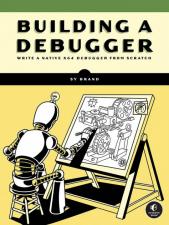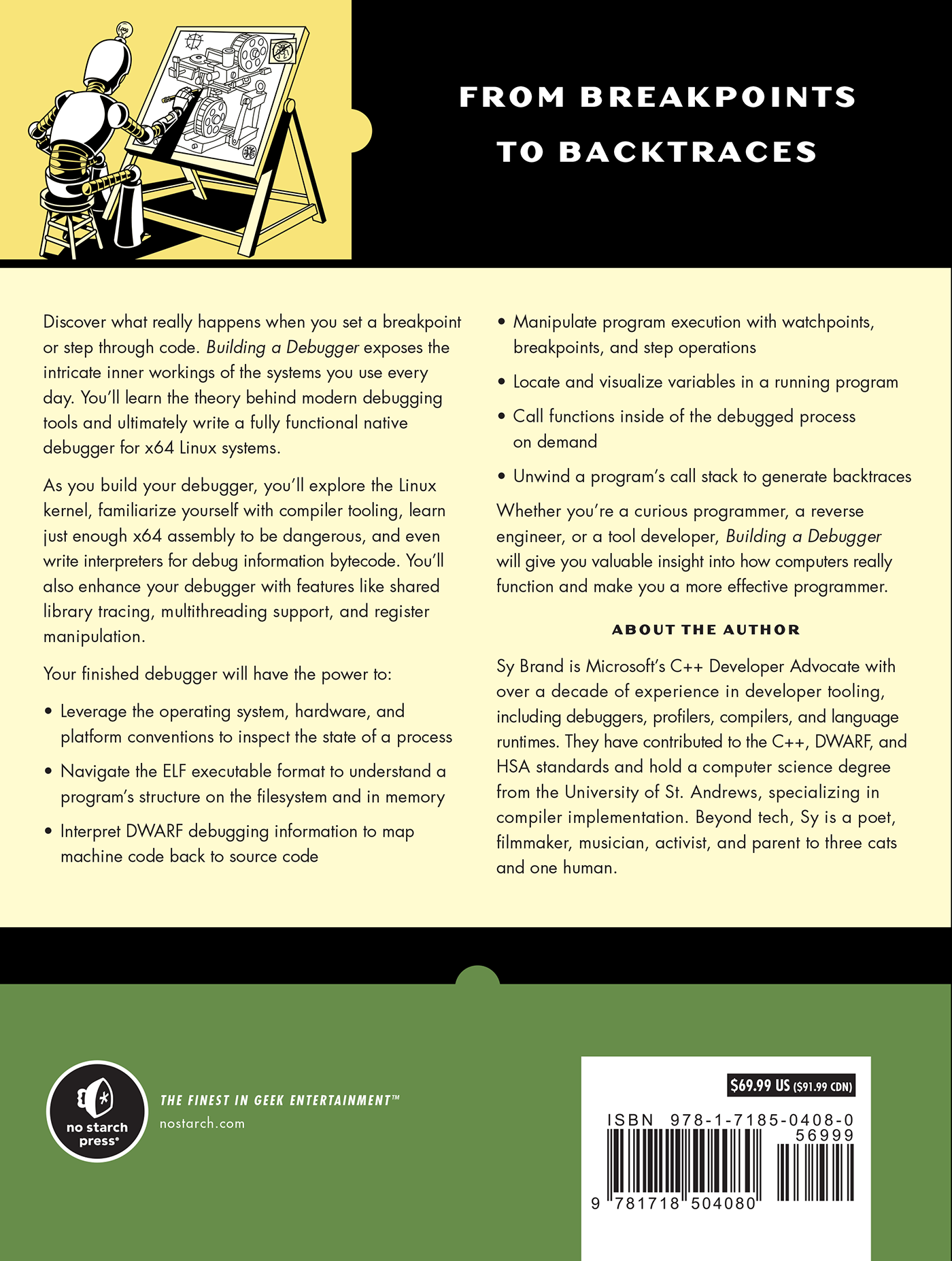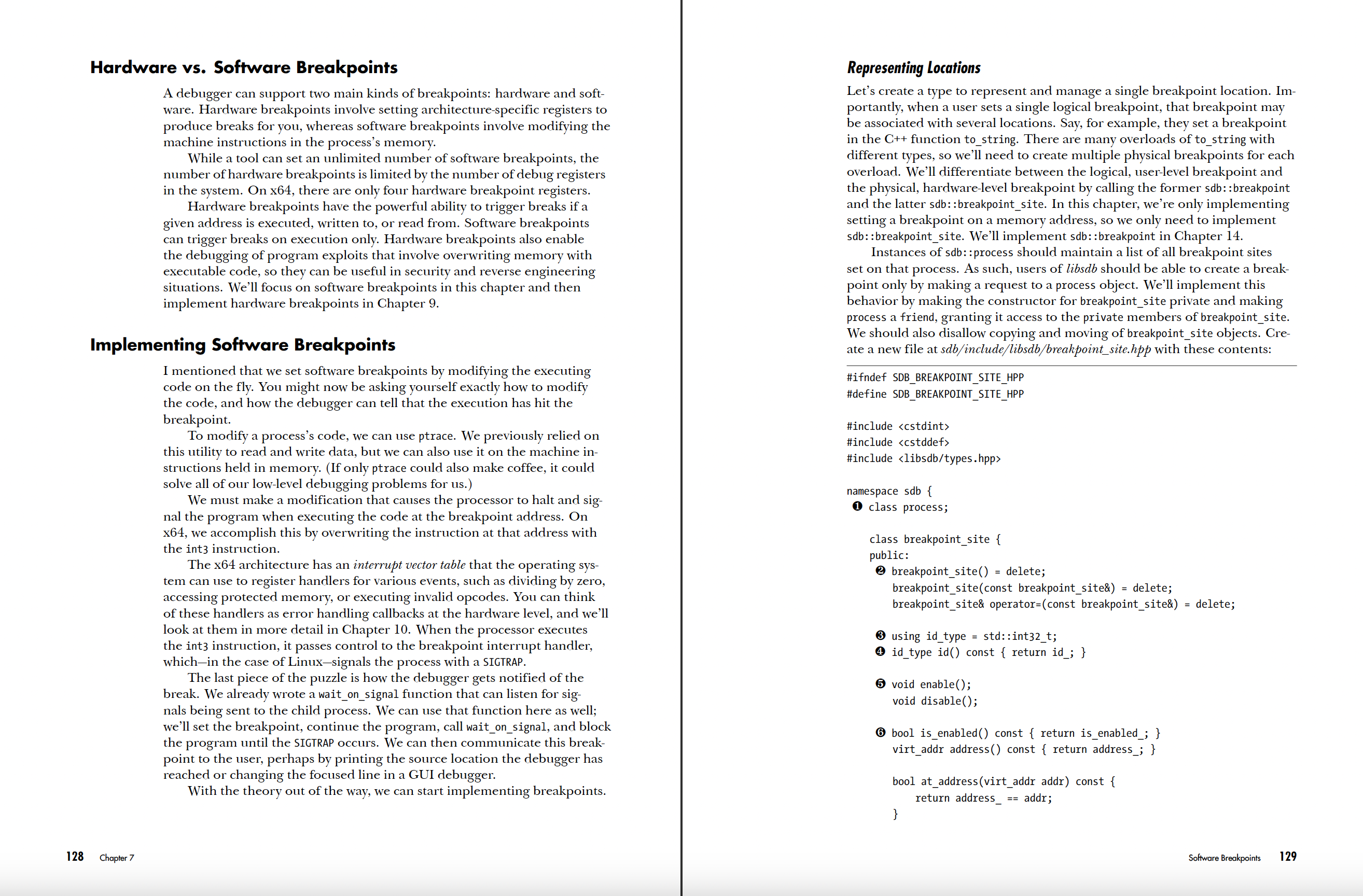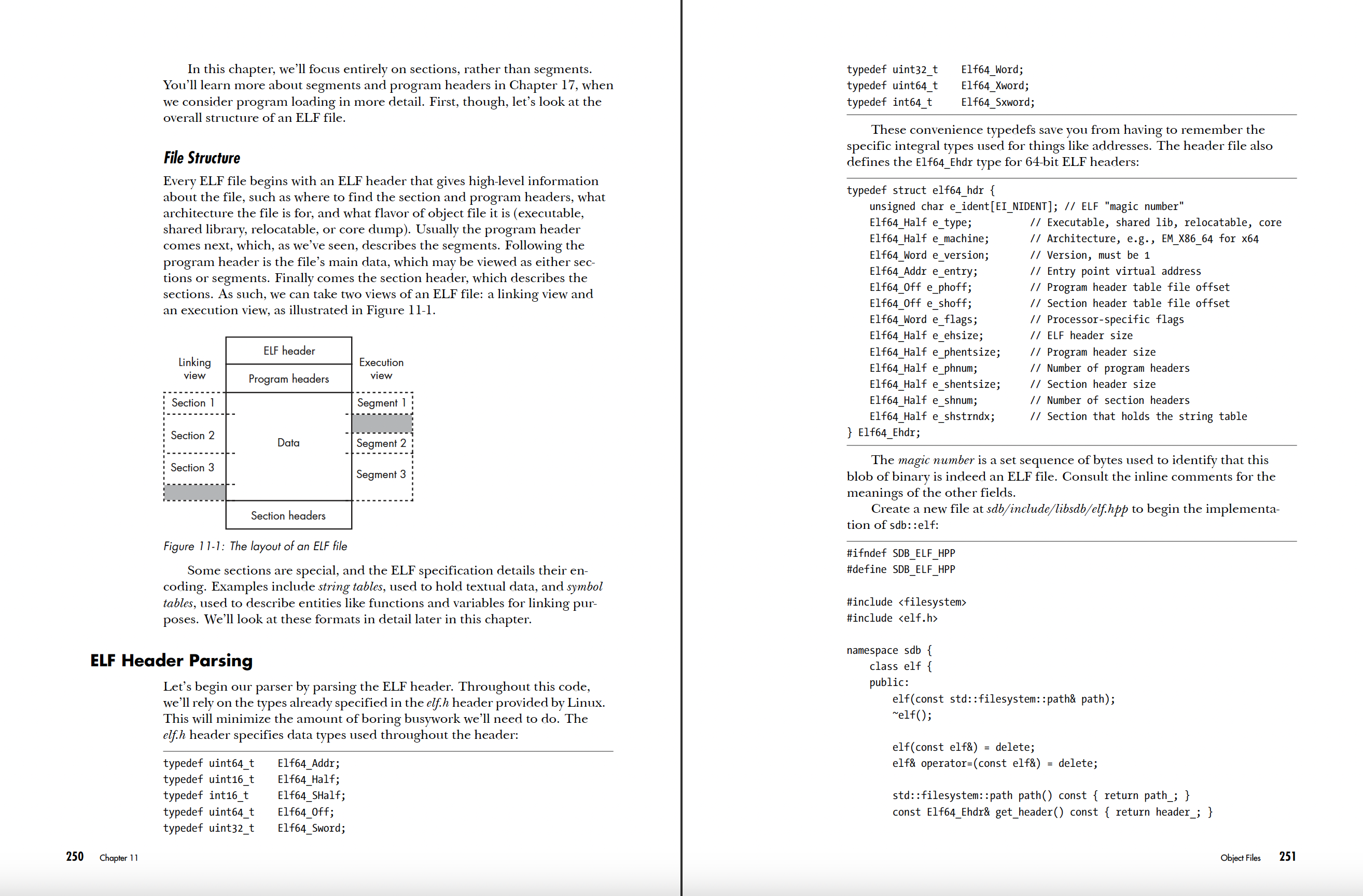Chapter 1: Project Setup
Chapter 2: Compilation and Computer Architecture
Chapter 3: Attaching to a Process
Chapter 4: Pipes, procfs, and Automated Testing
Chapter 5: Registers
Chapter 6: Testing Registers with x64 Assembly
Chapter 7: Software Breakpoints
Chapter 8: Memory and Disassembly
Chapter 9: Hardware Breakpoints and Watchpoints
Chapter 10: Signals and Syscalls
Chapter 11: Object Files
Chapter 12: Debug Information
Chapter 13: Line Tables
Chapter 14: Source-Level Breakpoints and Stepping
Chapter 15: Call Frame Information
Chapter 16: Stack Unwinding
Chapter 17: Shared Libraries
Chapter 18: Multithreading
Chapter 19: DWARF Expressions
Chapter 20: Variables and Types
Chapter 21: Expression Evaluation
Chapter 22: Advanced Topics
Appendix: Check Your Knowledge Answers
Glossary
Index
Building a Debugger
Download Chapter 3: Attaching to a Process
Look Inside!
If debuggers seem like magic to you, there is no better way to demystify them than to write your own. This book will show you exactly how to do it, walking you through the entire process of building a debugger for x64 Linux systems using C++. As you go from an empty filesystem folder to a fully fledged debugger capable of setting breakpoints, stepping through code, manipulating variables, and more, you’ll learn how to:
- Attach to a process
- Read and write to registers
- Set hardware and software breakpoints
- Output disassembly
- Support multithreading and other tasks
As you add features to your debugger, you’ll also pick up a wealth of knowledge about operating systems, compilers, software testing, and low-level programming that you can use in your day-to-day development.
A repository of code and errata for this title can be found at the book's GitHub page.





